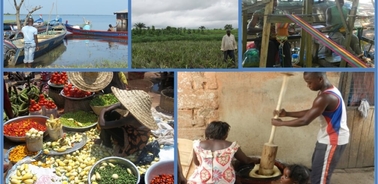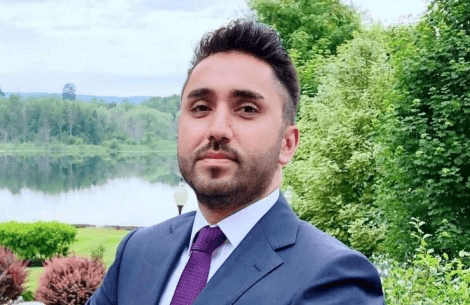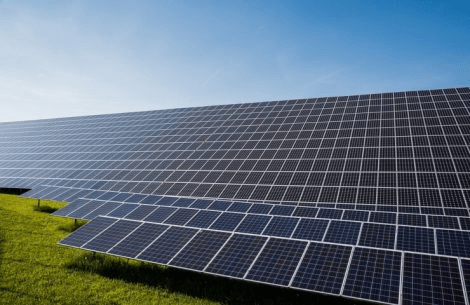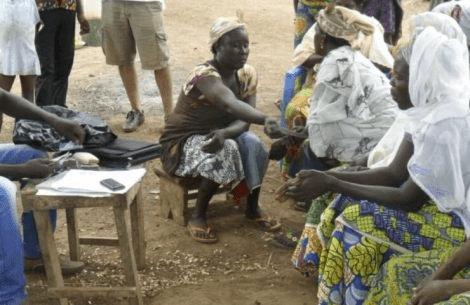- Home
- News And Events
- What’s Going On
- Master In Finance Final Projects Reap Accolades
Master in Finance Final Projects Reap Accolades

Master in Finance students bring real-world know-how to their final projects.
Industry insiders praised IE Business School’s Master in Finance students' final projects as professional-grade material, with projects addressing issues like digital assets, solar power plants, and microfinancing.
“The project approached the level of an institutional standard, which is quite an accomplishment at the graduate student level. The team was a pleasure to work with and put in tremendous effort and attention to detail,” MIF alum Matt Buchholz, Co-founder and Managing Director of Pliris Wealth, who helped mentor one of the projects.
Marco Trombetta, who tutored a group working on a microfinance in Ghana project, commended the students’ ability to grasp the intricacies of the issue without being able to travel to Ghana.
“It is very difficult to understand the peculiarity of a financial NGO without having the chance of actually visiting it in person and, especially, to meet some of their clients. However, the team managed to do a great job at a distance,” Trombetta said.
“They spotted the financing problems through a very thorough analysis of the information received and they managed to conduct online interviews so that they could obtain most of the missing info.”
Marco Trombetta
Here are three standout examples of the MIF Final projects:
Future of Finance, Decentralized and Tokenized
Yekta Kaviani’s Final Project concerned blockchain technology and its ability to create new products, services, and technologies. He said the end goal for his project went beyond the immediate need for readers to better understand the key ideas of this ecosystem. Ultimately, he said he hoped readers would rethink money, trust, capital markets and develop their own ideas about democratizing the world.
Jean-Marc Bonnefous, who tutored Kaviani in the project, said the MIF candidate achieved his goal.
“This lively overview of the makings and impact of Decentralised Finance (DeFi) provides an expert tour of the alternative financial infrastructure being built using new technologies such as blockchain and incentive economics,” Bonnefous said.
Kaviani said he sees his final project as a starting point for him.
“I believe all business and finance graduates will have a strong competitive edge if they are practically aware of digital assets, tokenization, and blockchain technologies as it is going to show up in their careers and personal lives in one way or another.”
Yekta Kaviani
Valuation of Photovoltaic Plant
Looking to address the practical issues associated with solar energy, three students teamed up to conduct a valuation examination of photovoltaic plants. The valuation project consisted of students performing a valuation analysis of a company owned by a private equity firm, which was completed under the supervision of a professor. The three MIF students Fillipe Rodriguez, Hugo Raimundo, and Giorgio De Angelis addressed the profitability of developing and operating a utility-scale solar photovoltaic plant in their valuation project.
The students said working on this project specifically was key as it enabled them to deepen their understanding of project finance, as well as the process of developing a greenfield solar photovoltaic project.
“Given the fact that some of us are going to work in energy, this project becomes increasingly relevant as it allowed us to develop critical thinking on the assumptions to be used in such project finance models,” Raimundo said.
“By analyzing the renewable energy sector, we were able to understand the trends and reference values of this industry which is crucial when discussing this topic in a professional environment.”
Hugo Raimundo
The project focuses on the production of energy at the lowest possible cost. The team found the efficiency of utility-scale solar PV plants has reached a threshold at which its levelized cost of energy (LCOE) is already competitive with the marginal cost of operating existing conventional generations (coal, nuclear, and gas). They asserted that this reality has major implications in accelerating the process of energy transition to meet climate and carbon neutrality’s target by 2050.
However, Raimundo said, it is worth noting that such targets can only be met if policy changes are put in place with continuous technology improvement. From a financial perspective, utility-scale solar PV projects yield stable returns in the current low-interest-rate context, making it attractive to institutional investors such as pension funds and insurance companies looking to diversify their portfolios while fostering investments with a positive environmental impact.
Microfinance in Ghana
Six MIF students came together for their final exam project, which addressed microfinance in Ghana and consisted of taking part in a consultory microfinance project in collaboration with Financiers without Borders. In previous years, this project has included a trip to Ghana to gain first-hand insight into the local financial climate. Due to travel restrictions caused by the Covid pandemic, the project was conducted virtually this year.
Mattia Melen, Alexander Bergmuler, Jørgen Vedal, Javier Artizti, Boris Greco, and Fabian Freirermuth were the six participants who took part in this standout final exam project.
The NGO the team worked with this year was the Associated of Sustainable Rural Development (ASRuD). ASRuD is a rural, non-governmental development organization located in Ho, Ghana. The MIF students team provided technical assistance and consulted ASRuD in their institutional setup of financial viability and risk management, products, loan portfolio quality, and business planning to attract international funding to continue growing from the business and social standpoint.
The students said they found the experience of working on a project that could potentially improve the lives of people extremely rewarding.
“Implications are exponential,” Greco said. “Our impact is direct and real and has affected the living conditions of hundreds of people and once more they implement our recommendations.”
Participant Greco said his experience as a mergers & acquisitions analyst gave a specialized lens to make a thorough financial analysis and notice mistakes even from audited statements.
“I had the chance to work on the financial viability of the institution by focusing solely on the financials. It was interesting to notice what are the revenue drivers and how they evolve over the periods under review,” Greco said.
“I made recommendations to the management to put in place in order to improve the financial viability of the institution.”
Boris Greco


